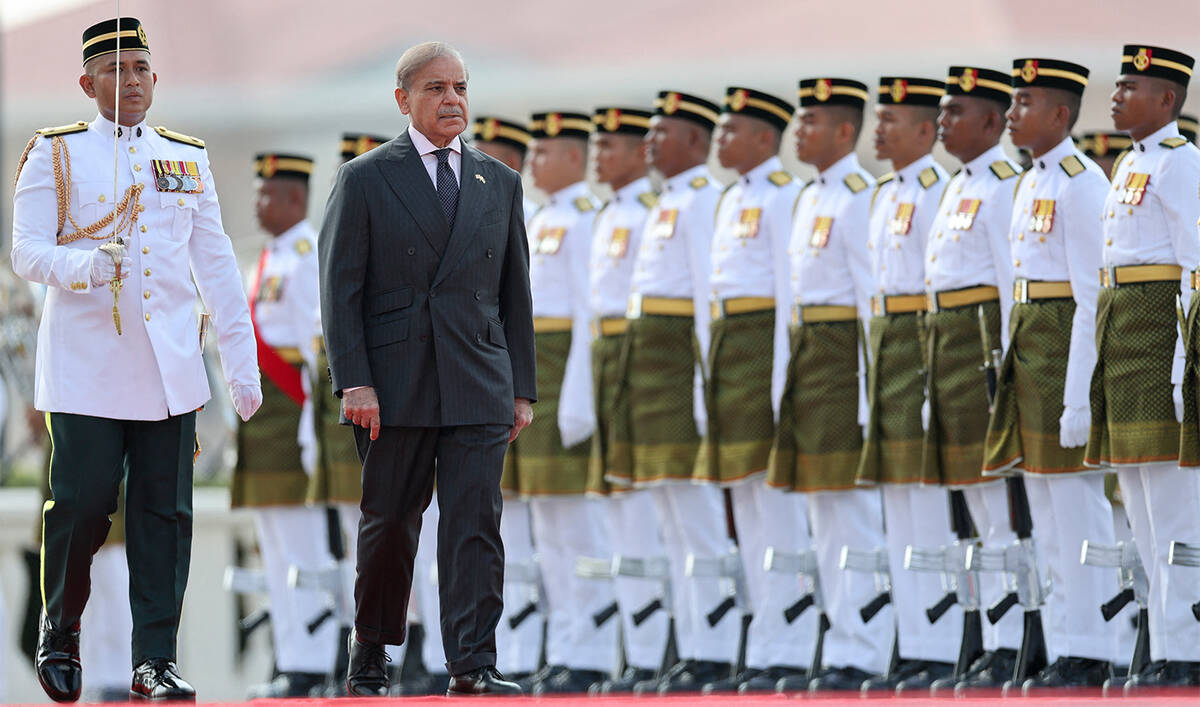ISLAMABAD: Pakistan has repatriated more than 13,500 Afghan nationals since the expiry of a March 31 deadline set by Islamabad, Pakistani officials said on Monday, amid intensifying efforts to return all illegal foreigners and Afghan Citizen Card-holders to their home countries.
Pakistan last month set the deadline for some 800,000 Afghans carrying ACCs to leave the country, another phase in IslamabadŌĆÖs campaign in recent years to return foreigners, mostly Afghans, living in Pakistan. The move is part of a larger repatriation drive of foreign citizens that began in 2023, with over 800,000 Afghans expelled from Pakistan since. The government initially said it was first focusing on expelling foreigners with no legal documentation and other categories like ACC holders would be included later.
According to the United Nations (UN) data, Pakistan has hosted more than 2.8 million Afghan nationals who crossed the border in a desperate attempt to escape decades of war and instability in their home country. Around 1.3 million of them are formally registered as refugees and hold Proof of Registration (PoR) cards, which grant them legal protection. Another 800,000 Afghans possess ACC, a separate identity document issued by the Pakistani government, that recognizes them as Afghan nationals without offering refugee status.
ŌĆ£As per the governmentŌĆÖs decision, the operation against illegal foreigners and ACC-holder Afghans is continued with full intensity since April 1,ŌĆØ Qadir Yar Tiwana, a senior official at the Pakistani interior ministry, told Arab News.
ŌĆ£All those who are confirmed after checking are being sent to the holding centers for further processing to be repatriated.ŌĆØ
Although Pakistani federal authorities have not released details of recent detentions, provincial governments in Khyber Pakhtunkhwa (KP) and Balochistan, which border Afghanistan, have confirmed repatriating 11,134 individuals through the Torkham border crossing and over 2,500 via the Chaman border crossing, respectively.
ŌĆ£After the expiry of the deadline from April 1 till today, more than 2,500 individuals have been deported, which includes illegal and ACC card-holder Afghans,ŌĆØ Habib Ahmed, the Chaman deputy commissioner, told Arab News.
ŌĆ£In the latest deportation drive, a total of 11,134 illegal immigrants have been deported via KP, including 1,573 from Islamabad, 3,905 from Punjab, 38 from Azad Kashmir, one from Gilgit-Baltistan and 44 from Sindh,ŌĆØ the KP home and tribal affairs department said, adding that this included around 3,053 ACC-holders.
ŌĆ£Only on Monday, a total of 1,437 illegal Afghan nationals were deported through Pak-Afghan Torkham border.ŌĆØ
Anwer Shehzad, a KP government focal person for repatriation centers, said both holding centers in Peshawar and Landi Kotal were working hard to ŌĆ£ease the repatriation process.ŌĆØ
ŌĆ£We are sending them back to Afghanistan after completing all the processes at the Landi Kotal holding centers, including the finger-print scanning for the record,ŌĆØ he told Arab New.
ŌĆ£There is no extensive operation going on in KP but we are receiving individuals from other parts of the country.ŌĆØ
Shehzad clarified the KP government had initially focused on encouraging voluntary repatriation, but they were now launching search operations in the province.
A spokesperson of the Punjab police said the governmentŌĆÖs campaign for the deportation of illegal immigrants continues ŌĆ£without interruptionŌĆØ in the province.
ŌĆ£So far, 4,111 individuals have been deported from the province with the assistance of relevant agencies during the ongoing deportation campaign,ŌĆØ a police spokesperson said, adding a total of 46 holding centers had been established across Punjab.
ŌĆ£Over 5,950 illegal foreign residents have been sent to holding centers during the campaign and currently, 1,839 illegal foreign residents are present at the holding points.ŌĆØ
In PakistanŌĆÖs southern province of Sindh, a total of 307 illegal foreigners and ACC-holders have been repatriated since April 1, according to Sohail Ahmed Jokhio, a spokesperson for the Sindh home minister.
ŌĆ£Of these, 187 were undocumented illegal foreigners, while 120 were Afghan nationals holding ACCs,ŌĆØ he told Arab News.
Jokhio said the Sindh government has established two holding centers: one in Karachi and the other in Jacobabad.
Shahid Rind, a spokesperson of the Balochistan government, said the provincial administration has started arresting illegal foreigners and Afghan ACC-holders as per the federal governmentŌĆÖs direction.
ŌĆ£Police and other agencies are acting on the information to arrest the individuals falling in the category defined by the federal government and they are sent to the holding centers for further processing,ŌĆØ he told Arab News.
Rind said provincial law enforcement agencies and the administration were facilitating the repatriation of these individuals.
Afghan refugee ministry spokesman Abdul Mutalib Haqqani has said that ŌĆ£more than a million Afghans might returnŌĆØ to their home country under the repatriation drive, urging Islamabad to ensure their dignified return.
ŌĆ£We are urging Pakistan authorities not to deport them (Afghans) forcefully ŌĆö there should be a proper mechanism with an agreement between both countries, and they must be returned with dignity,ŌĆØ he was quoted as saying by AFP news agency.
Speaking to Arab News, UN High Commissioner for Refugees (UNHCR) Pakistan spokesperson Qaiser Khan Afridi expressed concerns over the deportation drive and reports of arrests of ACC holders.
ŌĆ£We believe that among the Afghan Citizen Cardholders, there may be individuals requiring international protection. In that light, we are urging the Government to see their situation through a humanitarian lens,ŌĆØ he said.
ŌĆ£We also call for engagement between Pakistan and Afghanistan to so that returns can be dignified and voluntary. It is imperative that returns is voluntary and dignified so that reintegration in Afghanistan is sustainable.ŌĆØ
Ties between the neighboring countries have frayed since the Taliban takeover, with Pakistan accusing KabulŌĆÖs rulers of failing to root out militants sheltering on Afghan soil, a charge the Taliban government denies.
ŌĆ£The government and people of Pakistan have a commendable, decades-long history of hosting Afghans who fled conflict and violence in the past,ŌĆØ Afridi said.
ŌĆ£UNHCR reiterates its call and urges Pakistan to continue to protect those seeking safety, as it has done for many decades, recognizing the ongoing human rights situation in Afghanistan and noting that there are people whose lives might be at risk if they return, regardless of their status.ŌĆØ

















